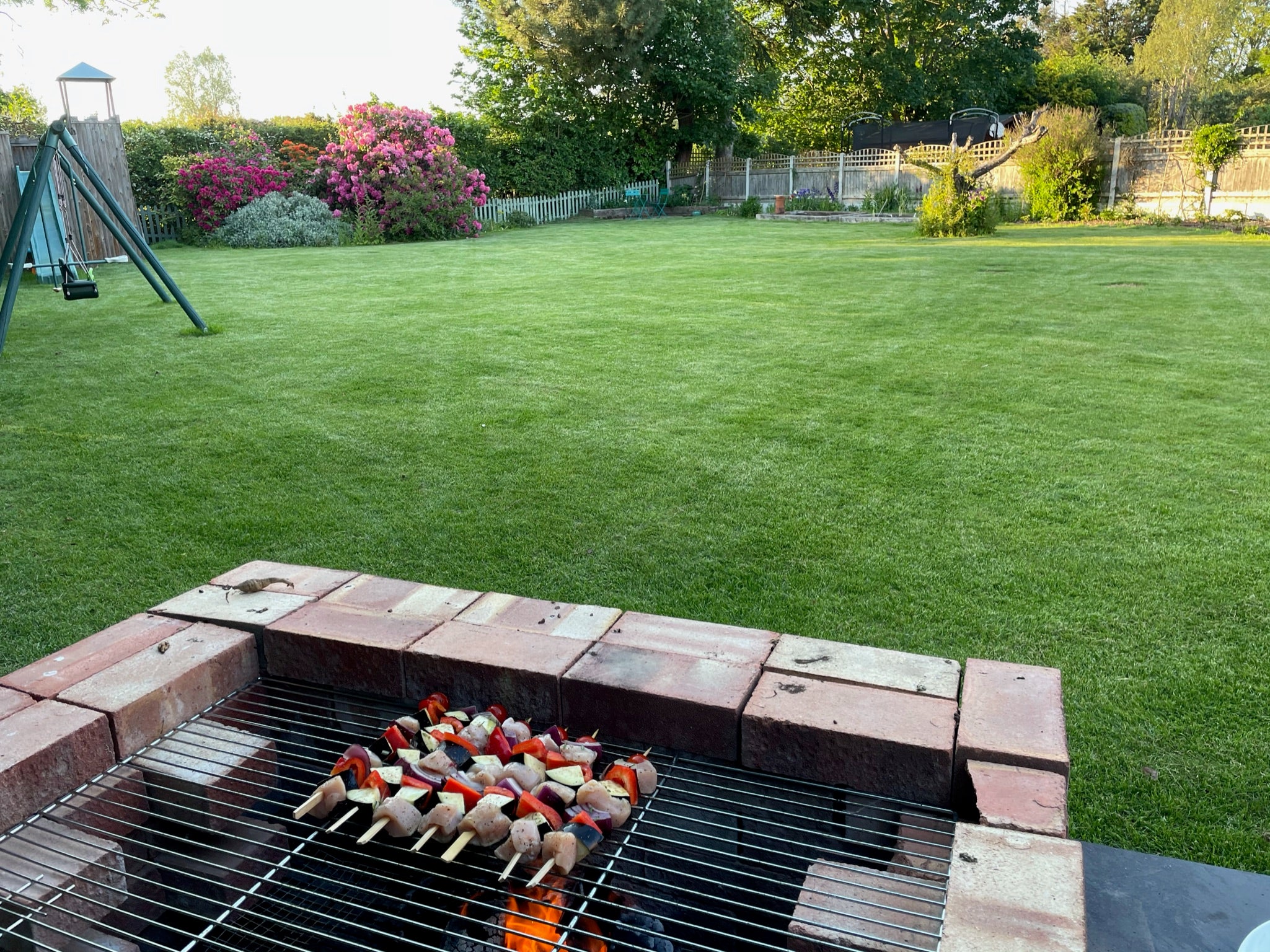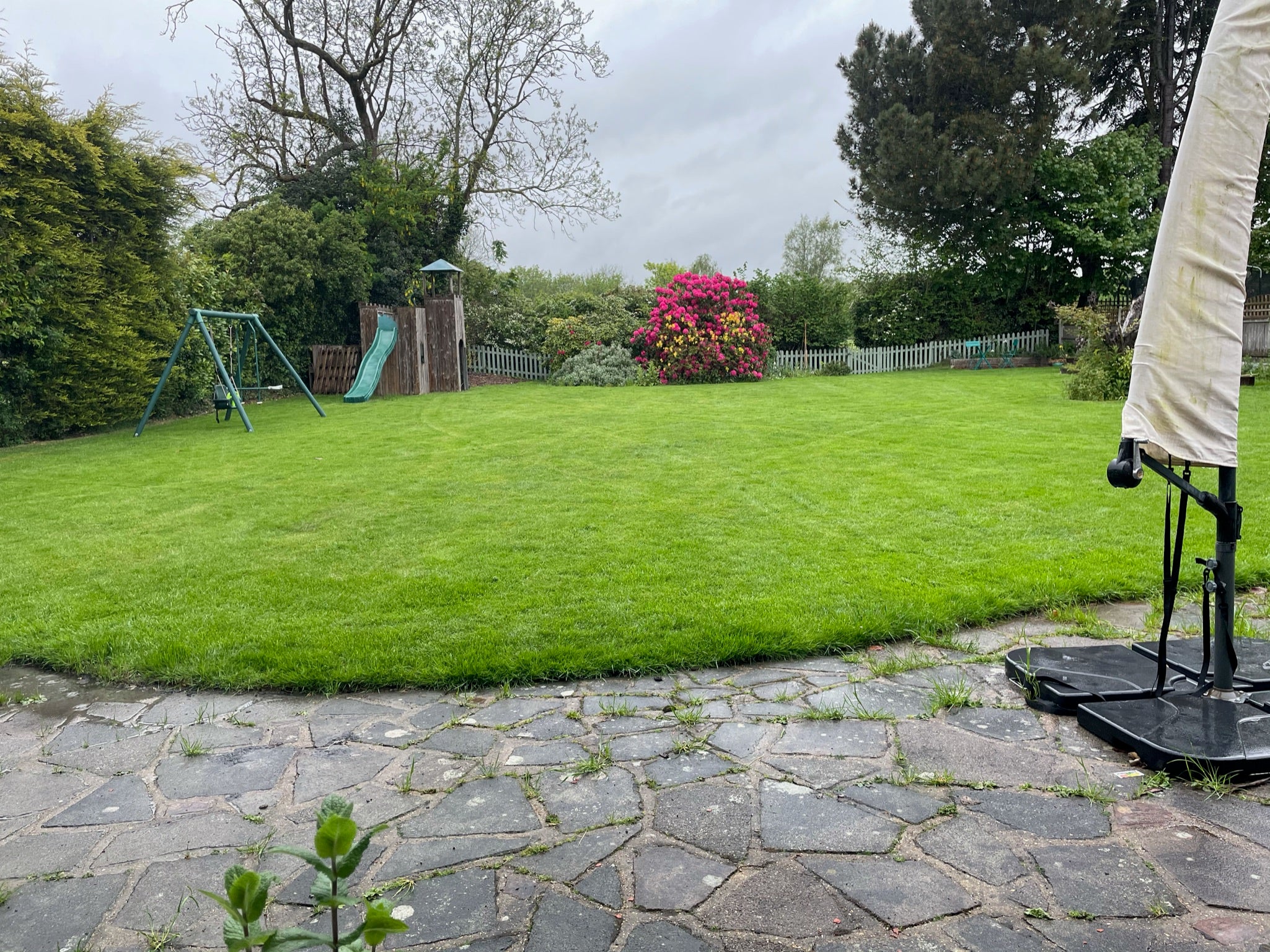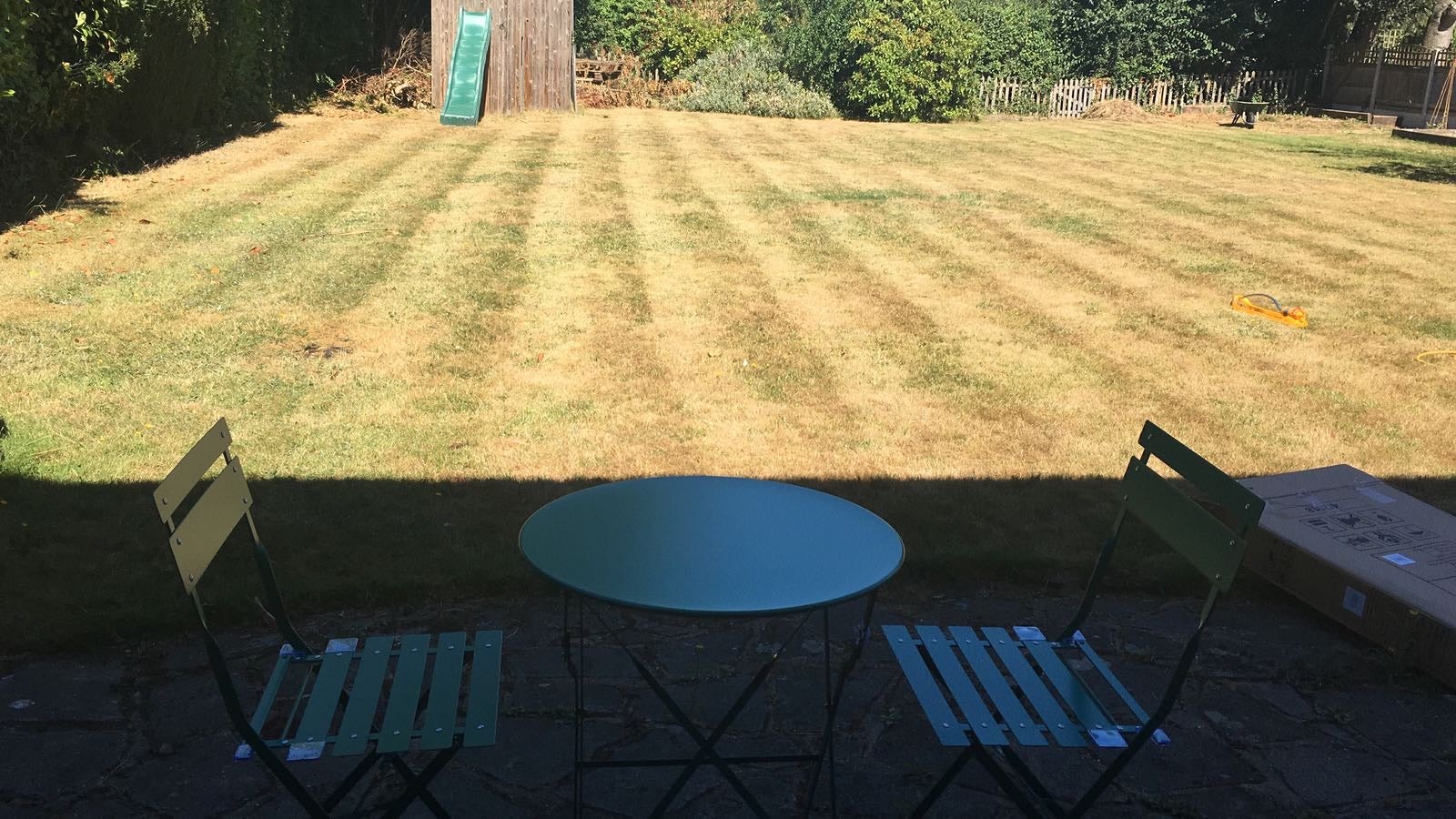There are many small joys to be found at this time of year. All of us have our signposts that point to better times. The first flash of the daffodil, the clocks going forward, or Creme Eggs coming back. For me, there is one moment of unalloyed happiness that surpasses them all. It is a trip to the garage to bring a very special creature called Sven out of hibernation for another season.
The temperature needs to have warmed sufficiently – consistently above five degrees at night. It helps if there are a few consecutive dry days too, all of which came far later than normal this year.
I pick him up, I give him a little clean, and I press him with a satisfying little click into his summer home. In case you haven’t guessed, Sven is a robot lawn mower. He will sail across the green baize in the back garden for eight hours a day, five days a week, just shaving off the tops of the blades, returning their nitrogen-rich stubble back to the earth, keeping the lawn in a state of constant perfection (save for the edges).
Watching Sven’s first shifts of the year are nothing short of bliss. Seeing the garden return to use each spring, knowing you’re getting the best room in the house back again, is a feeling of perhaps uniquely British happiness. Those long summer evenings are payback for all those dismal months of darkness at 4pm.

But, like all good things, someone somewhere is trying to end it. Right now, it is “No Mow May”; an idea dreamed up by a charity called Plant Life five years ago and now taken seriously by all manner of news outlets and gardening publications.
There is commendable sentiment behind it. Lawns, frankly, are an abomination. They offer no biodiversity whatsoever. Most of them are treated with large amounts of chemicals. Some of them are irrigated with potable water, even in times of drought (an indefensible crime).
They were dreamt up by mediaeval noblemen solely for bragging rights. There were few better ways to show off than to make it very publicly known that you had so much land you didn’t even need to grow or raise anything in it. Where you plant your potatoes, I play croquet.
Not mowing provides more habitat for bees and butterflies, and more cross pollination. Lawn pests like daisies can achieve full flower. And May is the best time of year to keep bees and butterflies happy, because more flowers are in bloom.
But the trouble is, lawns are good. Without a lawn, you can’t play football in the garden. Guests at parties and barbecues cannot readily stand about in wildflower meadows.
And tedious, neurotic lawn bores like myself simply cannot bring themselves to give up at this most crucial moment in the lawn year.

Lawns are a constant battle between good and evil – grass and weeds. To not mow for the entirety of May would simply allow evil to flourish. No Mow May evangelists speak in gushing terms about allowing such things as lesser trefoil to reach full flower. In 2020, my lawn was probably 40 per cent lesser trefoil. Exterminating it is one of my proudest and most hard-fought achievements. The idea of giving it an entire month to do as it pleases fills me with utter horror.
Letting grass grow freely for a full month at the fastest growing time of year means that it will take almost a month again to recover from the brutalising haircut it will take on 1 June, when the blades are long and thick at the base, and have quite possibly gone to seed.
It is also somewhat dubious what the garden neglect movement is trying to achieve. If humanity vanished suddenly from suburbia, their gardens would succumb to one of two fates. First would come the bramble, the nettles and eventually, decades if not centuries later, it would return to forest. Alternatively, depending on the precise nature of the apocalypse that had made this possible, herds of grass eating ungulates would arrive, who would do a very fine job of maintaining the lawn on behalf of their vanished owners.
To want to keep gardens in the extremely ugly infancy of these two journeys is somewhat futile. Sure, you can sow wildflower meadows, which may look glorious in year one, but will eventually require as much if not more maintenance than a lawn, when the bullying weed grasses show up to tell the pretty flowers who’s boss.

The success of the No Mow May movement has actually compelled its organisers to change their stance. They now say that it was never actually about a full month-long mowing ban, but merely a way to encourage people to mow less frequently, or to consider giving up on some of their lawn altogether.
This has more merit. Depleting Sven’s habitat is not an easy job. It involves digging up and repositioning his boundary wire – a monstrous pain in the arse. But maybe it is an idea whose time has come. Smaller lawns are probably the future. But messy ones? Sorry, it’s a no from me.



Join our commenting forum
Join thought-provoking conversations, follow other Independent readers and see their replies
Comments